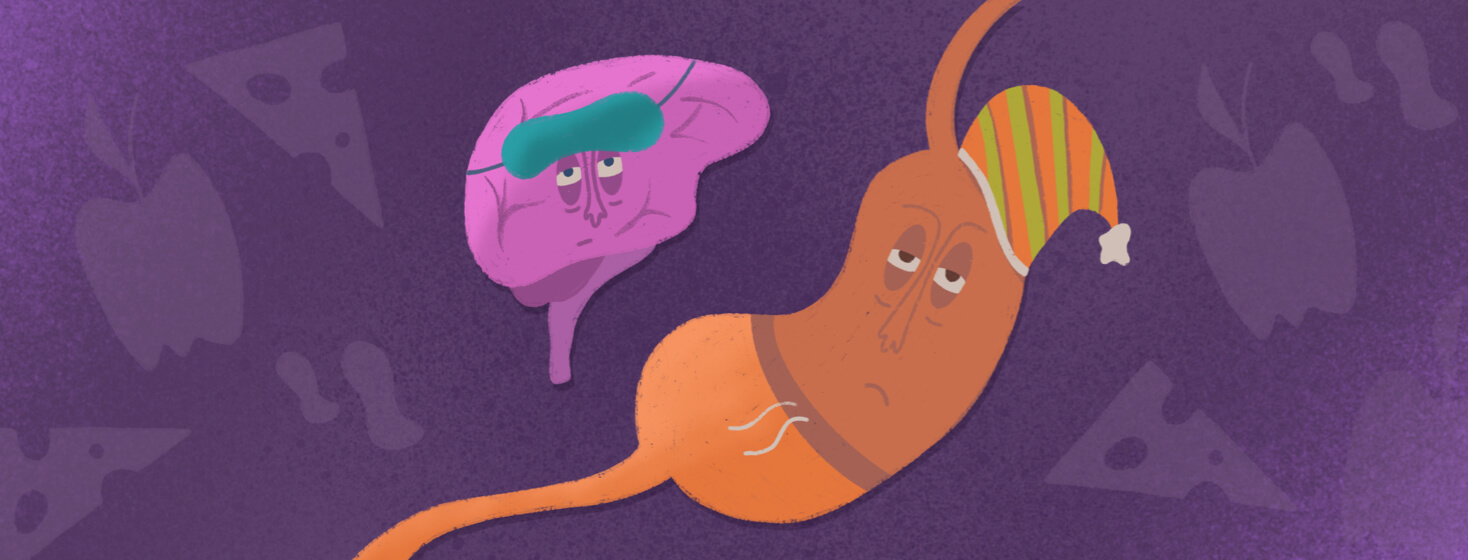Nighttime Snacks
It can be tempting to look for "magic foods" to help with sleep and improve insomnia, but this article is slightly different.
When people are dieting or otherwise restricting calories to lose weight, they may not be eating enough later in the day to keep their energy stores topped up for the night. Calorie restriction later in the day could make insomnia worse.
So, what should you do if you wake up in the middle of the night and feel hungry or find yourself having trouble sleeping because of your hunger?
Nighttime digestion issues
The answer is very individual. It is usually recommended to avoid eating too late at night for various reasons. For me, eating a large meal before bed is not a great idea. It can give me – and some others – reflux, mainly if the food is spicy, very savory, or heavy.
I find that foods high in fat can mess with my digestion during the night and cause heartburn. They can disturb my sleep even without me having insomnia. It is a potential powderkeg of problems for some people who already have sleeping difficulties. However, it doesn't create problems for others.
Snacking before bedtime
Eating a meal too close to bedtime may also make it difficult to fall asleep. It can be hard to get comfortable with a full belly – or an empty one! And, if a meal before bed is a "second dinner," it could contribute to being overweight, which is a risk factor for developing sleep apnea.
However, snacking before bedtime does help me avoid getting hungry at night, especially if it is a healthy snack with protein and carbohydrates. Carbohydrates tend to be stored in the liver and muscles, and get released as needed by the body and the brain (which is very active during sleep).
Suppose your body's stores of carbohydrates are running low as you go to bed. In that case, you may wake in the night feeling hungry – or rather, your brain will awaken you to add more glucose into your system. Even if you are not feeling obviously hungry, the sensitive brain can pick up a dip in glucose.
No magic food "cure"
Carbs I tend to like before bed include apples and bananas. Bananas, in particular, are high in potassium. They are associated with increased melatonin levels in men several hours after eating them. Women are tricky to study because of hormonal fluctuations that affect sleep already, so they often leave them out!1
Kiwis, though expensive, have been linked to improved sleep. However, one often-cited study's design can't rule out a placebo effect.2
I tend to vote for kiwis as "eat them if you like them and can afford them," but don't consider them – or any food – a potential "cure" for your insomnia. They don't address some of the perpetuating factors that keep insomnia going, such as worries/anxieties and fears surrounding sleeping problems.
Talk to the experts
You should always get any sleeping issues checked out by your doctor, especially if you persistently wake in the night because you are hungry but are not hungry during the day. There are a variety of nighttime eating disorders that may need to be investigated.3,4
If you want to include changes in your diet as part of your insomnia management plan, please consult a registered dietitian. Not everything found on the internet (including this article!) will suit everyone.
My go-to nighttime snacks
So what does this sleep therapist snack on if she needs a bite before bed? My go-tos are cheddar cheese slices and crackers, apple slices, and peanut butter or oatmeal. I like to make overnight oats (for fiber, protein, and carbs) with a bit of yogurt (for calcium) and have that as a treat in the evening.5
Do you have a favorite snack before bedtime or in the evening? Do you eat it to enjoy it, or do you eat it to help sleep?

Join the conversation